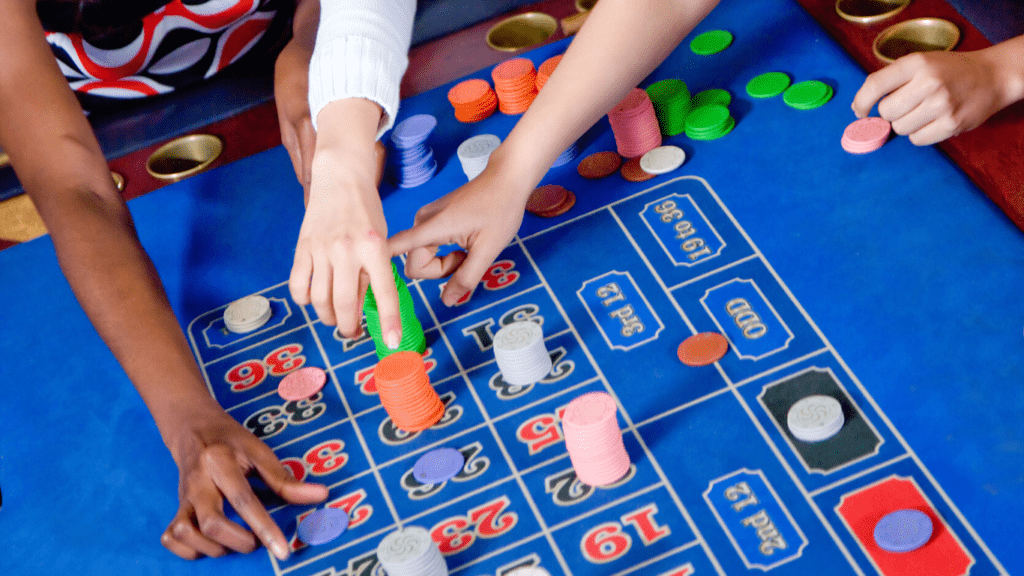Understanding Betting Limits
Betting limits act as financial boundaries, ensuring control over gambling activities. These limits help players focus on strategy and enjoyment while minimizing risks.
What Are Betting Limits?
Betting limits define the maximum amount allocated for gambling within a specific session or time period. Examples include daily spending limits, cap amounts per hand in card games, or predetermined loss thresholds. By setting these boundaries, players ensure they’re investing responsibly without exceeding their means.
Physical betting locations and online gaming platforms often implement mandatory caps for bets. These measures promote fair play and consistent spending control among users.
The Psychology Behind Betting Limits
Betting limits positively impact decision-making and emotional responses. Setting financial boundaries instills discipline, helping players avoid impulsive bets driven by excitement or stress. For instance, players with pre-determined budgets are less likely to chase losses or exceed their balance unexpectedly.
Maintaining limits reduces gambling-related anxiety and fosters patience. This restraint empowers deliberate, calculated moves, improving long-term outcomes regardless of wins or losses.
The Role Of Self-Control In Gambling
Self-control plays a critical role in maintaining balance and discipline while gambling. It helps manage emotions, set boundaries, and make rational decisions during high-pressure situations.
Importance Of Self-Discipline
Self-discipline lays the foundation for responsible gambling by keeping impulsive behaviors in check. It ensures that I stick to predetermined betting limits and avoid overspending. For instance, by resisting the urge to chase losses, I maintain focus on long-term goals rather than short-term gratification.
Discipline also helps me follow strategies without deviation, even when a streak of wins or losses occurs. By staying consistent, I reduce emotional volatility and increase the chances of making better financial decisions over time.
How Self-Control Impacts Decision-Making
Self-control directly enhances decision-making by minimizing irrational choices driven by emotions. When I remain calm under pressure, I can analyze risks objectively instead of reacting based on excitement or frustration.
By managing impulses, I avoid risky bets, such as placing wagers on games where I lack knowledge or increasing stakes deceptively after small losses. Better decisions result from:
- self-restraint
- improving overall strategies
- fostering consistent gameplay without unnecessary risks
Benefits Of Setting Betting Limits

Implementing betting limits offers practical advantages that improve both financial outcomes and the overall gambling experience. These benefits ensure responsible gambling habits and contribute to long-term success.
Financial Stability
Betting limits safeguard finances by preventing excessive losses. Allocating a fixed amount for gambling ensures other financial priorities remain unaffected, such as savings or daily expenses. For example, setting a daily spending cap of $50 keeps gambling proportional to your budget, protecting against debt. This approach supports consistent financial health while maintaining control over discretionary spending.
Enhanced Gambling Experience
Clear betting boundaries foster enjoyment by reducing stress and enhancing focus. When I gamble within a pre-set limit, I avoid constant worry about overspending, letting me fully engage with the gaming experience. This focus improves decision-making and encourages a strategic approach to betting. For instance, sticking to a $100 session limit helps manage expectations and prevents impulsive plays, making gambling more entertaining.
Reduced Risk Of Problem Gambling
- Betting limits act as a preventative measure against gambling addiction.
- Controlled spending minimizes reckless behaviors like chasing losses, which are common indicators of problem gambling.
- By setting a $200 loss threshold for a week, I prioritize moderation, reducing harm and maintaining emotional well-being.
- These boundaries protect against compulsive gambling tendencies while supporting sustainable gaming habits.
Practical Tips For Setting Betting Limits
Setting betting limits involves implementing strategies to maintain control and foster responsible gambling habits. Familiarize yourself with practical methods that simplify the process and encourage sustainable gaming.
Establishing A Budget
I outline a clear budget before gambling to avoid exceeding financial boundaries. This budget includes a fixed amount for a specific session, day, or week. For instance, if I allocate $100 weekly for gambling, I ensure not to surpass it, regardless of winnings or losses. Prioritizing necessary expenses, like rent or savings, over gambling eliminates the risk of financial strain.
Using Gambling Apps To Set Limits
I use gambling apps offering features like deposit caps and playtime restrictions to facilitate control. Many platforms provide options to set maximum deposits or wagers, ensuring I don’t spend beyond my predetermined amount. For example, online casinos allow players to program session reminders or self-exclusion periods to maintain disciplined play.
Knowing When To Walk Away
I step away once I hit my betting limit or achieve a personal target, avoiding the temptation to chase additional wins or recover losses. Identifying warning signs, like emotional frustration or prolonged sessions, helps me recognize when to stop. This practice reduces impulsive decisions, keeping the experience enjoyable and stress-free.
Common Challenges And How To Overcome Them
Managing betting limits often comes with obstacles that test self-control. Identifying these challenges and implementing effective strategies helps maintain discipline and focus.
Emotional Triggers
Strong emotions, such as frustration or overconfidence, often lead to impulsive bets. For instance, anger over a loss can trigger attempts to win back money, while excitement from a win may tempt bigger wagers. To counter this, I track my emotional state before and during gambling sessions. Deep breathing techniques or short breaks help me reset my focus when emotions run high. Setting a “cool-off” period after significant wins or losses prevents rash decisions driven by feelings rather than logic.
Peer Pressure
The influence of peers can lead to spending beyond set limits. For example, friends might encourage higher stakes or a longer session. I combat this by reinforcing personal boundaries and openly communicating my betting limits beforehand. When gambling in group settings, I stick to my pre-planned budget regardless of external opinions. Apps that enforce spending caps serve as an additional safeguard, reducing susceptibility to outside pressure.
Recognizing Signs Of Losing Control
Signs like chasing losses, exceeding set budgets, or increasing session frequency indicate diminishing discipline. I monitor my gambling habits closely, reviewing patterns weekly to identify concerns early. If I notice struggles with self-control, I pause gambling activities and seek guidance from self-help tools or professional resources. Taking action immediately helps me regain focus and protect both my finances and mental well-being.


 Dallaseth Evansquire serves as the Chief Content Strategist at Gamble Time Hub, where they lead the vision and direction of all editorial content. With a deep-rooted passion for the gambling industry, Dallaseth curates and oversees high-quality articles that span gambling news, sports betting analysis, and high-stakes player stories. Their expertise ensures that the platform remains both informative and engaging, while also emphasizing the importance of responsible gambling practices. Dallaseth’s creative direction plays a key role in shaping the voice and credibility of Gamble Time Hub.
Dallaseth Evansquire serves as the Chief Content Strategist at Gamble Time Hub, where they lead the vision and direction of all editorial content. With a deep-rooted passion for the gambling industry, Dallaseth curates and oversees high-quality articles that span gambling news, sports betting analysis, and high-stakes player stories. Their expertise ensures that the platform remains both informative and engaging, while also emphasizing the importance of responsible gambling practices. Dallaseth’s creative direction plays a key role in shaping the voice and credibility of Gamble Time Hub.

